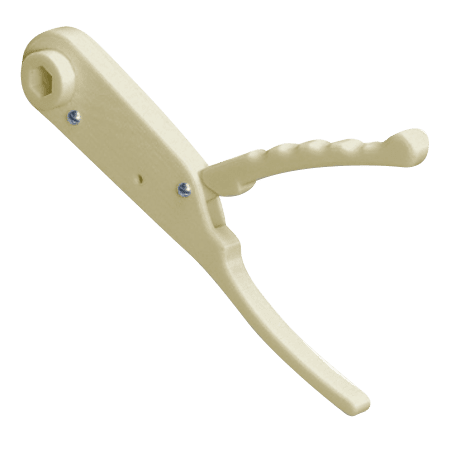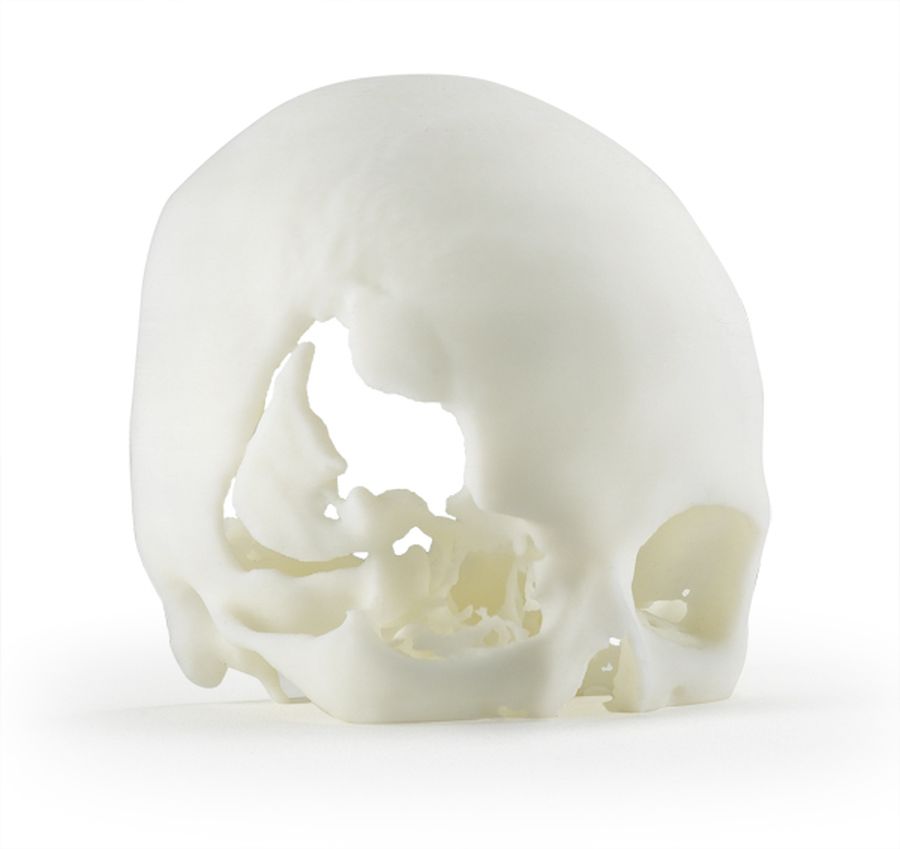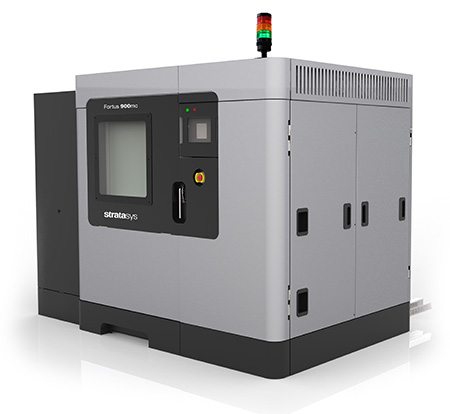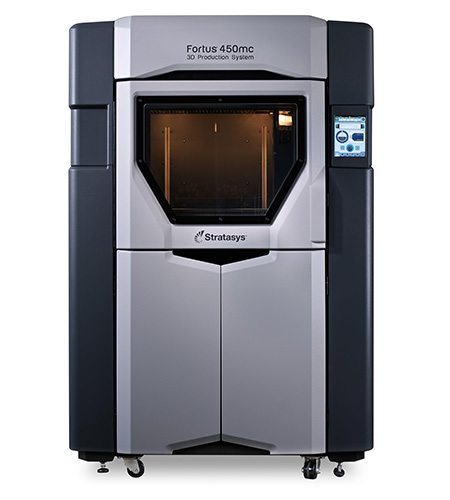
3D print with reliable bio-compatible material
Print more. ABSplus is an affordable FDM thermoplastic with production-grade durability offering a wide range of colours for concept modeling and rapid prototyping.
Overview
ABS-M30i is a high strength material that is bio-compatible making it well-suited for medical, pharmaceutical, and food packaging industries. 3D print with bio-compatible material that can be gamma or EtO sterilized, ideal for products and prototypes that come in contact with skin, food, and medications.

Material Performance
Up to 25 to 70% stronger than standard ABS and is an ideal material for conceptual modeling, functional prototyping, manufacturing tools and end-use-parts. ABS-M30i has greater tensile, impact and flexural strength than standard ABS.

IZOD IMPACT,
NOTCHED
160 J/m XZ axis

Heat Deflection
Temperature
96°C

Flexural
Strength
61 MPa XZ axis

Tensile
Strength
36 MPa XZ axis
Material Highlights
Characteristics
- Bio-compatible
- Opaque
- Strong and durable
- Impact-resistant
- Dimensionally stable
Options
- Comes in Ivory and is ISO 10993/USP Class VI Certified (bio-compatibility)
- NSF 51 Food Contact Certified
Uses
- Medical device components
- Medical or pharmaceutical prototypes
- Functional prototypes
- Jigs and fixtures
- Manufacturing tooling
- Production parts
Advantages
- Gamma radiation or ethylene oxide (EtO) sterilization
- Accurate, reliable functional testing
- Hands-free support removal
Performance Scale
![]()
![]()
![]()
![]()
Material Colours

Technical Specifications
| Mechanical Properties | Test Method | English | Metric |
| Tensile Strength (Type 1, 0.125”, 0.2”/min) | ASTM D638 | 4,650 psi | 36 MPa |
| Tensile Modulus (Type 1, 0.125”, 0.2”/min) | ASTM D638 | 350,000 psi | 2,400 MPa |
| Tensile Elongation (Type 1, 0.125”, 0.2”/min) | ASTM D638 | 4% | 4% |
| Flexural Strength (Method 1, 0.05”/min) | ASTM D790 | 8,800 psi | 61 MPa |
| Flexural Modulus (Method 1, 0.05”/min) | ASTM D790 | 336,000 psi | 2,300 MPa |
| IZOD Impact, notched (Method A, 23°C) | ASTM D256 | 2.6 ft-lb/in | 139 J/m |
| IZOD Impact, un-notched (Method A, 23°C) | ASTM D256 | 5.3 ft-lb/in | 283 J/m |
| Thermal Properties | Test Method | English | Metric |
| Heat Deflection (HDT) @ 66 psi, 0.125″ unannealed | ASTM D648 | 204°F | 96°C |
| Heat Deflection (HDT) @ 264 psi, 0.125″ unannealed | ASTM D648 | 180°F | 82°C |
| Vicat Softening Temp. (Rate B/50) | ASTM D1525 | 210°F | 99°C |
| Coefficient of Thermal Expansion (flow) | ASTM E831 | 4.9E-05 in/in/°F | 8.82E-05 mm/mm/°C |
| Coefficient of Thermal Expansion (xflow) | ASTM E831 | 4.7E-05 in/in/°F | 8.46E-05 mm/mm/°C |
| Glass Transition (Tg) | DSC (SSYS) | 226°F | 108°C |
| Eletrical Properties | Test Method | Value Range |
| Volume Resistivity | ASTM D257 | 1.5x10e14-6.0x10e13 ohm-cm |
| Dielectric Constant | ASTM D150-98 | 2.9 – 2.7 |
| Dissipation Factor | ASTM D150-98 | .0053 – .0051 |
| Dielectric Strength | ASTM D149-09, Method A | 370 – 80 V/mil |
| Other | Test Method | Value |
| Specific Gravity | ASTM D792 | 1.04 |
| Flame Classification | UL94 | HB (0.06″, 1.5 mm) |
| Rockwell Hardness | ASTM D785 | 109.5 |

